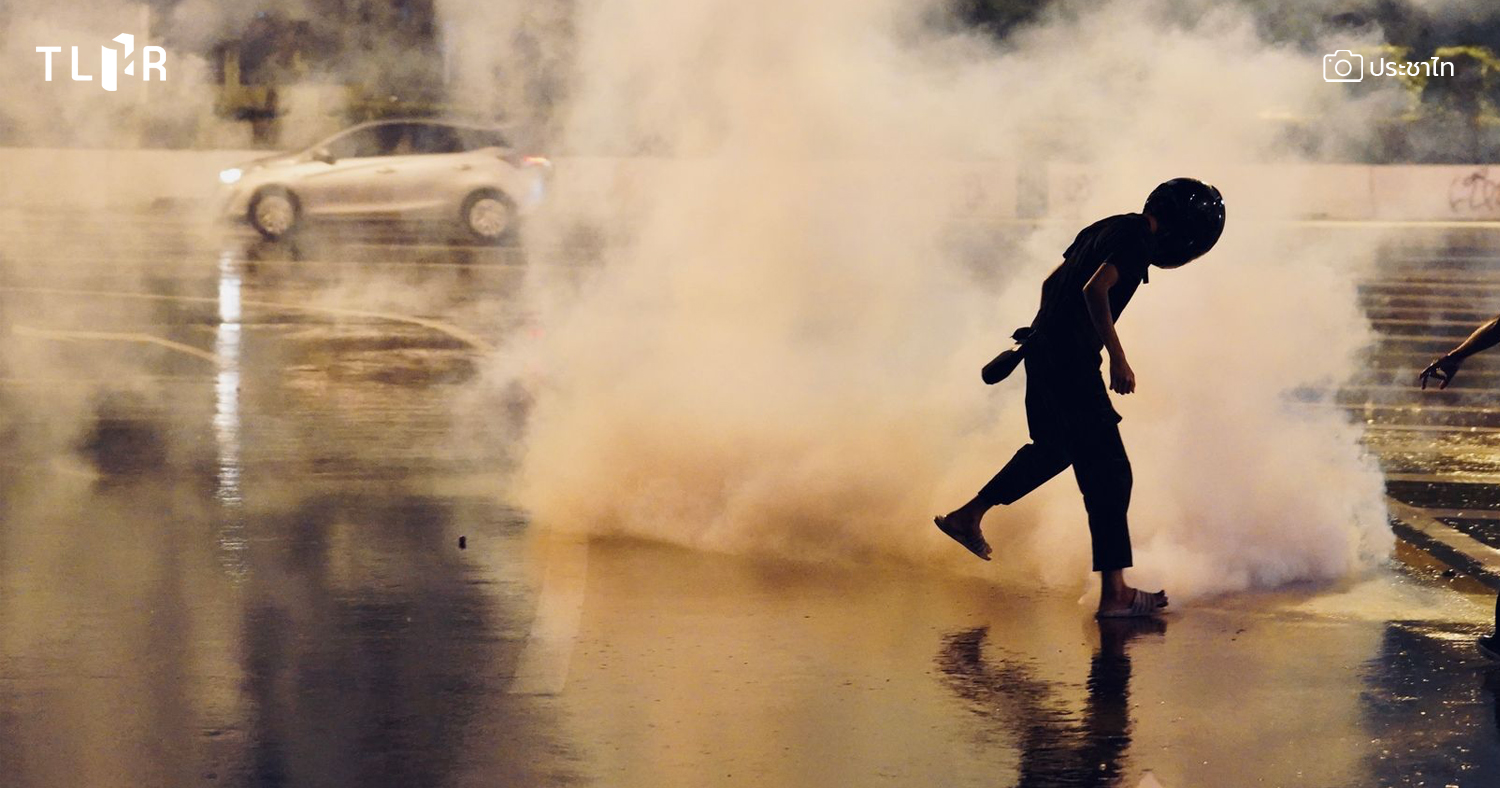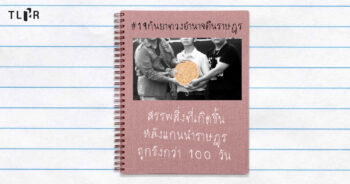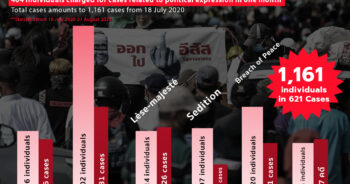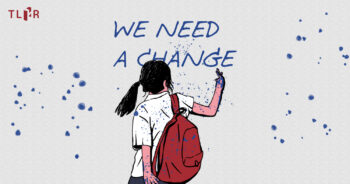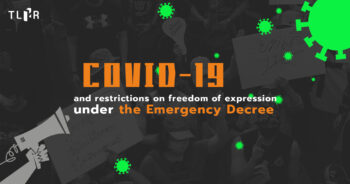Human rights situation amidst the Covid-19 pandemic
While the number of Covid-19 infection cases in September has decreased, the daily cases in Thailand still hovered around 10,000. Yet, the media has reported that Gen Nattaphon Narkphanit, director of the Centre for COVID-19 Situation Administration (CCSA), said that the government was preparing to abolish the Emergency Decree by the end of September and, instead, aiming to amend the Communicable Disease Act to cover the Covid-19 situation.
Later on 21 September 2021, the Cabinet approved the Draft Royal Ordinance B.E. … amending the Communicable Disease Act B.E. 2558 (2015), also known as the “Communicable Disease Royal Ordinance”, to empower its ability to manage the public health crisis. However, as the draft would have to pass the consideration of the parliament first, the Emergency Decree still continued to take effect in the meantime.
Thus, Gen Prayuth Chan-ocha, the prime minister, announced the extension of the Emergency Decree until the end of November 2021, making the law’s effective period until then 1 year and 8 months in total. The curfew order also remained valid for high-risk provinces, but was reduced from 9 pm – 4 am to 10 pm – 4 am instead.
Meanwhile, various measures issued under the Emergency Decree were continuously employed against political protestors. In September, 269 people were additionally accused resulting in 128 new cases. Consequently, at least 1,171 people in 483 cases have already been charged with the Emergency Decree since its announcement.
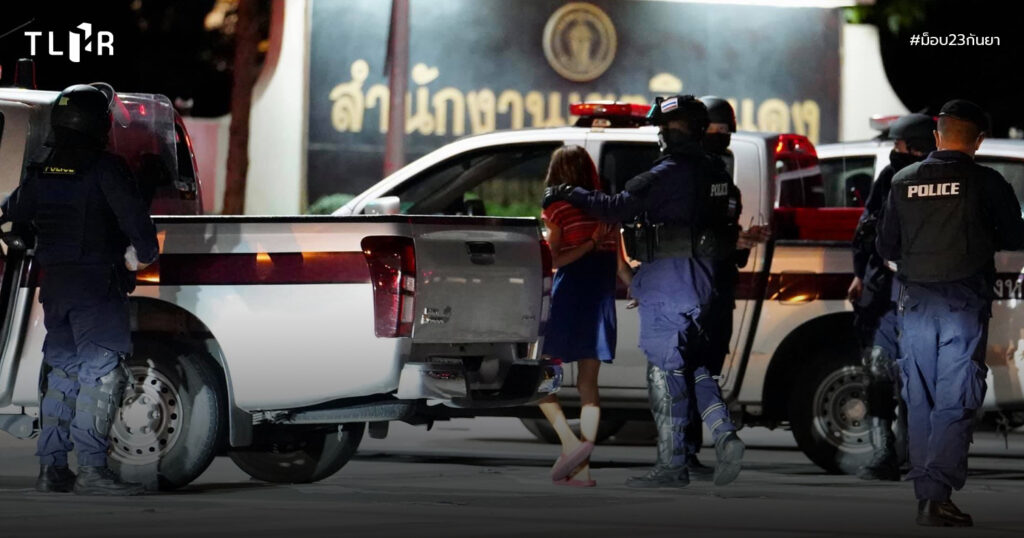
The number of cases has rapidly soared last month due to widespread protests against Gen Prayuth Chan-ocha, which took place almost daily in August and September. Even organizers and participants of the car mob activities in many provinces have faced lawsuits despite low risk of transmission. Although participants remained in their own vehicles during the activity, the authorities interpreted it as a violation of the Emergency Decree. As a result, since the first car mob event in the beginning of July 2021, at least 201 people in 86 cases from at least 34 provinces have already faced accusation in this manner.
In case of the peaceful protests with speeches on the stages or rallies to oust Gen Prayuth Chan-ocha, police from various stations also continued to issue warrants summoning speakers and participants to press charge with the violation of the Emergency Decree.
Overall human rights situation
- 297 new people faced political lawsuits in a month, increasing the total cases to at least 1,458.
According to the TLHR monitoring, 1,458 people in 794 cases have faced lawsuits for their political participation and expression since the “Free Youth” rally on 18 July 2020 until the end of September 2021. Among them were 223 youths of under 18 years old, 328 women, and 41 members of the LGBTQ+ community.
Compared to the figures as of the end of August 2021, this month saw an increase of 297 individuals and 173 cases (only counting those who had not been charged before), including 80 youths.
In September, protestors of various Talu-fah protests, who planned to march to the House of Government to call for Prayuth’s resignation, were blocked by authorities and arrested on a daily basis since last month, especially in Din Daeng area and Nang Loeng Intersection.
It has been reported that people were apprehended on 19 out of 30 days last month, accounting for 2/3 of the month. In total, 269 people were detained for partaking in protests, including at least 18 children of below 15 years old and at least 60 youths between 15 – 18 years old, with the youngest being 12 years and 4 months old. Among this number were 25 people who were arrested by warrant, while the rest was arrested on the spot.
Last month also saw arrests of and accusations against at least five independent news reporters. These were people who did not officially work for news outlet, but made news for online media via live reporting at the Din Daeng Intersection during the curfew hours. Authorities made arrests and pressed charges against them for not having the permission to leave residence after the curfew. The allegations include the participation of political assemblies too.
When jointly taking into account the protests at the Din Daeng Intersection and nearby areas, which had begun since 7 August, and the rallies at the Nang Loeng – Yommarat Intersection to the House of Government, the TLHR has observed that at least 374 people in 118 cases were arrested in total. In case of the violation of curfew under the Emergency Decree, it was found that the Court sentenced the defendants who pleaded guilty to a 2,000 Baht fine each.
In addition to the daily arrests, police constantly issued warrants summoning protestors, observers, and those working related to the protests to press charges. For instance, Charnchai Pudrangsi, one of the volunteer medics, was charged by the Din Daeng police officers in 12 cases for violating the Emergency Decree due to his participation in the protests each day.
- 19 new section 112 cases were initiated in one month. The 4 leaders charged with this law are still denied bail.
In September, 21 Section 112 cases were reported, including 19 new cases. As a result, at least 145 people, out of which were 12 youths, in 145 cases were charged with this law since November 2020 until September 2021 in total. The indictment pace of the Section 112 cases has also quickened, with at least 48 cases having been forwarded to the court recently.
At least 11 people were arrested with Section 112 charges this month, including 7 involving royal portraits: the removal of the portrait in front of the village in Nonthaburi, the destruction of the portrait in Din Daeng, the burning of the royal arch in Din Daeng during protest, the burning of the royal arch in front of the Ministry of Labour, and the burning of the portrait in Nong Harn District, Udon Thani.
Furthermore, the Section 112 lawsuits were also filed against speeches made in 2020. These include the case of Supitchaya “Menu” Chailom from the 30 November protest in Hat Yai, who had to travel from Chiang Mai to Hat Yai to hear the charge, and Thanakorn from the protest in Nonthaburi in mid-September 2020, who was a 17-year-old juvenile and had already been accused of Section 116 by that time.
In parallel, cases involving online expression ran on, especially the case of “Chaichana”, a schizophrenia patient from Lamphun province, against whom a citizen had filed a complaint of Section 112 charge in Narathiwat for sharing four posts. The police arrested Chaichana by the warrant issued by the Narathiwat Provincial Court and took him over 1,800 km to the Su-ngai Kolok Police Station in Narathiwat Province.
Lastly, Arnon Nampa was pressed Section 112 charge in prison by the TCSD police for questioning the King Rama X’s administration in the beginning of 2021. Arnon now has 14 Section 112 cases in total.
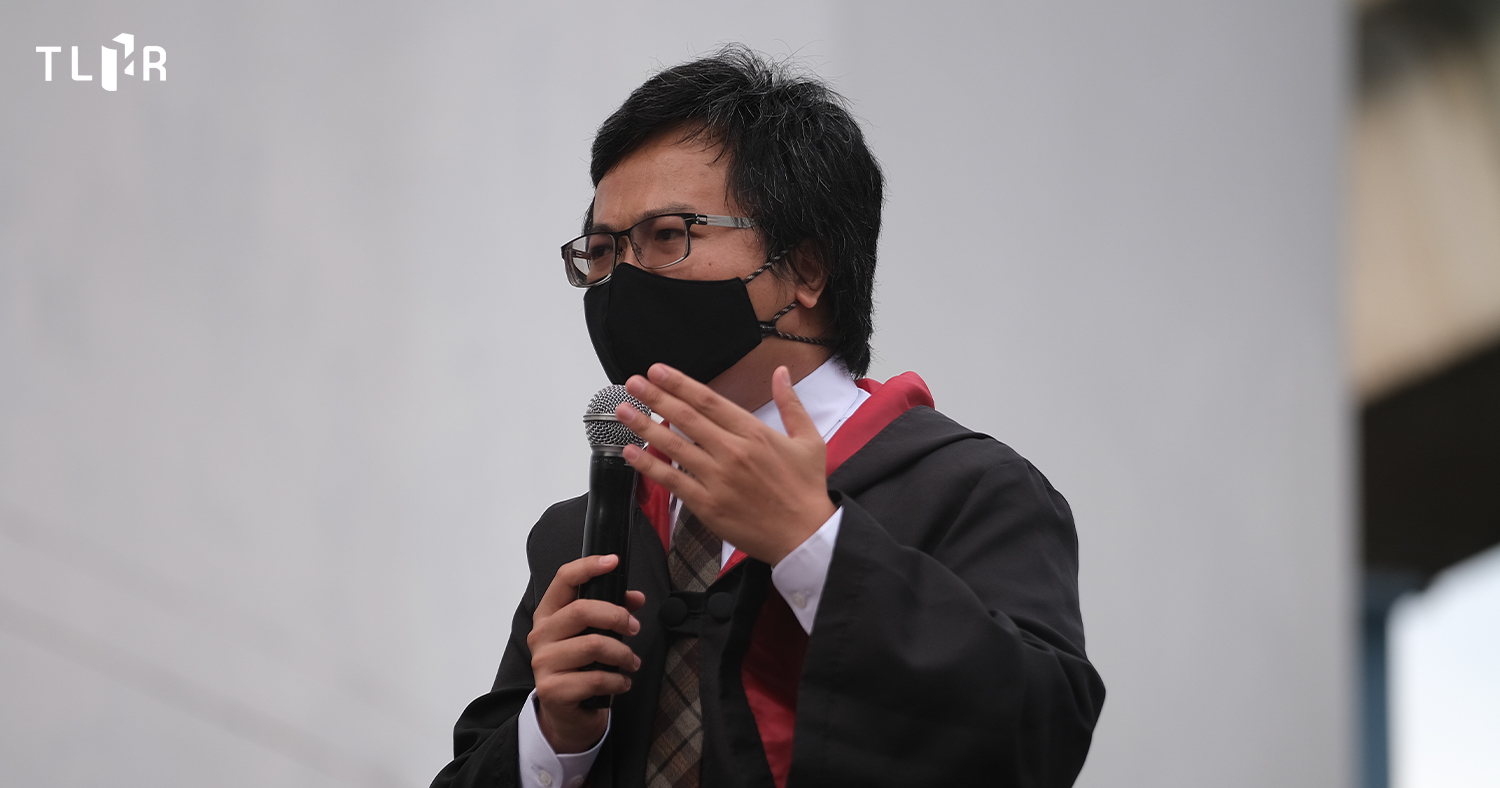
- The detention of activists and protestors regained intensity
The detention of political activists this month increased strength once again, after 11 people were arrested for political expression. Leaders charged with Section 112, including Arnon Nampa, Parit Chiwarak, Jatupat Boonpattararaksa, and Panupong Jadnok, are still denied bail and, thus, have been behind bars since August 2021.
In case of Panupong, even though he was released in the case of assembly in front of the Border Patrol Police Region 1, he was charged with Section 112 on 23 September 2021 for posting the letter to the King in an event on 8 November 2020. Once again, he was not granted a temporary release by the Court.
Meanwhile, four Talu-fah members who continued to hold activities are also denied bail. Nawapon Tonngam, Wachirawit Limthanawong, and Pawarit Yaemying have been accused of speaking and splashing paints in front of Thung Song Hong Police Station on 3 August 2021. The Court did not allow bail reasoning that they had violated the bail conditions. Tawee Tiangwiset was arrested by warrant for allegedly injuring officers and fleeing, when police cars had stopped in front of the group’s amplifier vehicle after the 3 September protest. The Court did not grant bail for him either.
Moreover, the Court did not allow bail for Chitipan (last name undisclosed), who had been arrested from the 16 September 2021 protest on Mitr Maitri Road after joining the Talu-gas protest, because the Court saw that he violated the bail conditions and got arrested for the second time. As for Mrs. Huad (alias), a Cambodian homeless woman who was arrested in Din Daeng area during the 11 September 2021 protest, the Court denied her bail due to the absence of personal documents and fear that she would flee. Lastly, the Juvenile Court refused to temporarily release Nut, a 16-year-old youth, who was arrested in the evening of 24 September 2021 and charged in 8 cases for pounding and burning several traffic control boxes, as no family member came to certify the request.
Meanwhile, police and public prosecutors attempted to get the bails revoked by the Court for activists in many cases seeing that they still participated in protests. The courts thus set examination dates for several of them, including the case of 17 Talu-fah activists, whose group together with citizens assembled in front of the Police Club on 2 August 2021. The Central Criminal Court for Corruption and Misconduct Cases decided against the police’s move as the explanation was not strong enough.
In the case of Wanwalee Thammasattaya, a female activist charged with Section 112 for speaking at a protest in Wong Wian Yai on 6 December 2020, the public prosecutor also sought a bail revocation for her during examination, reasoning that she had given another monarchy-related speech at a protest on 24 June 2021. However, the Thonburi Criminal Court rejected the request believing that Wanwalee’s act was not considered a breach, and gave her a warning instead.
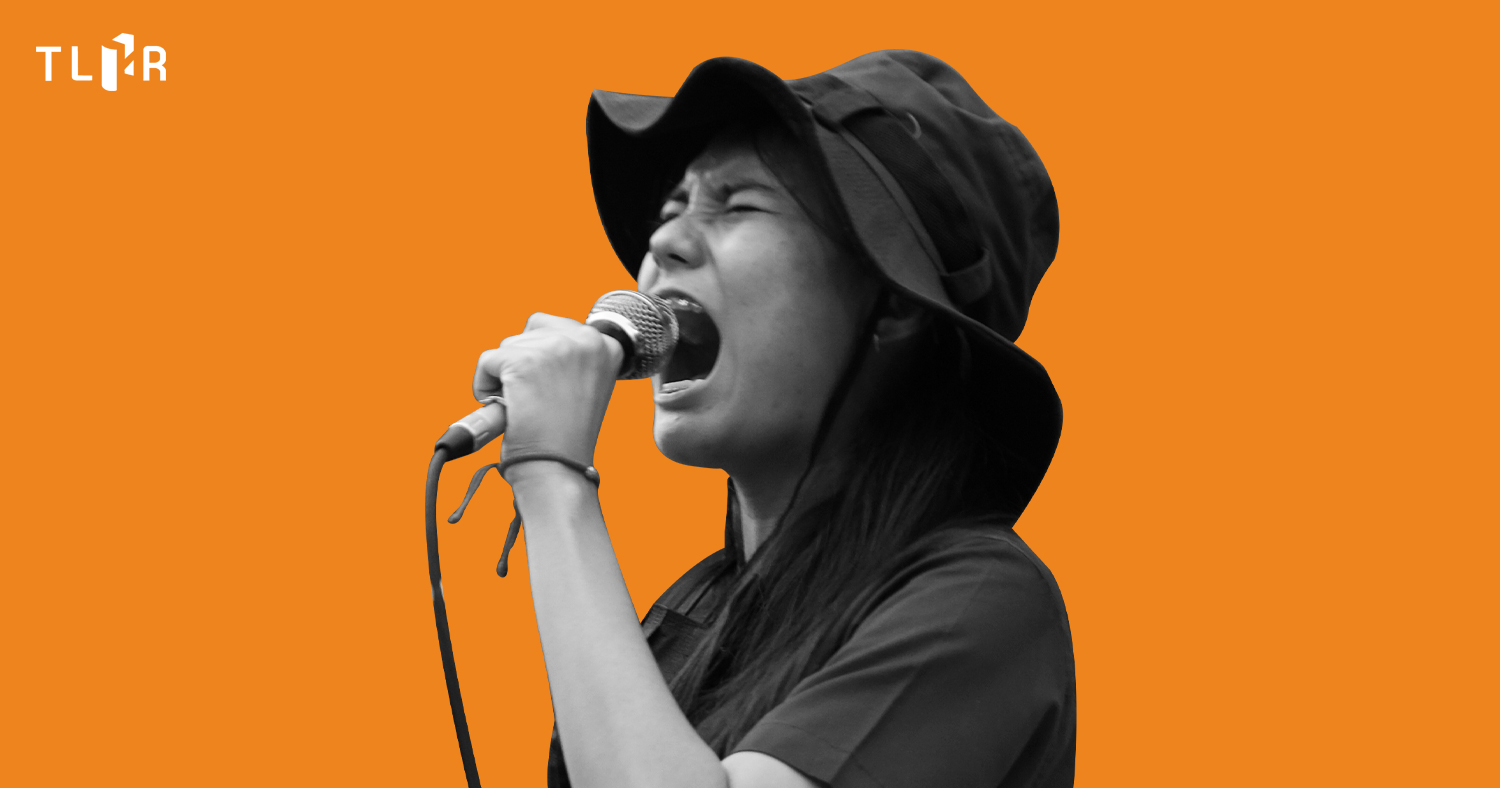
- State authorities still harass and monitor people organizing and participating in political activities.
State authorities, especially police from various divisions, still continuously follow and harass activists or politically active citizens. In Kanchanaburi in the beginning of September, leaders of “Free Youth Kanchanaburi” and “Seri Kan for Democracy” group were forced to cancel anti-government events following authorities’ visits to their houses.
In Petchabun, several members of “Free Petchabun Group”, who had announced a car mob event on the anniversary of the 19 September coup d’état, also received house visits from ordinary as well as Special Branch police officers or were approached to obtain information. It was found that officers had created a list of people with records of political involvement and to watch for. What’s more, three “Free Pattani” group, who had jointly opened a fundraising bank account, were visited by police officers to their houses in Pattani in order to acquire information about activities.
In addition, a merchant in Nonthaburi province who passed by the 11 August 2021 protest organized by the Talu-fah group at the Victory Monument, was also arrested and pressed charge. Later in September, he reported that plain-clothed police had visited him at his house for no less than 10 times to take pictures and warn him against future political participation.
